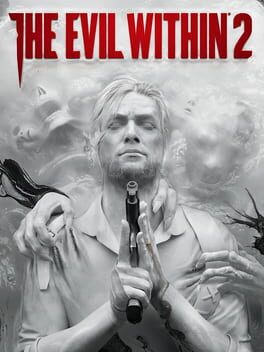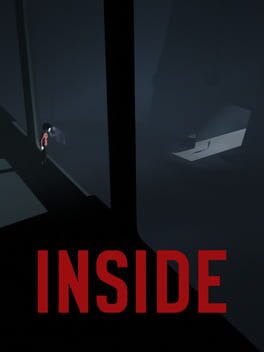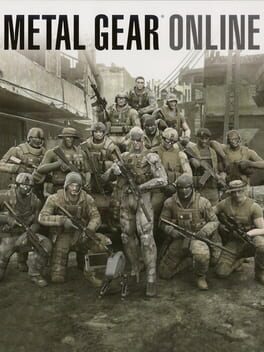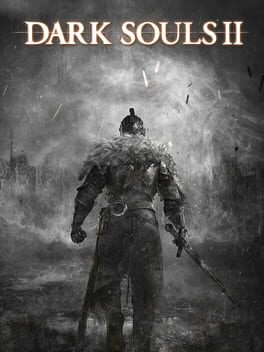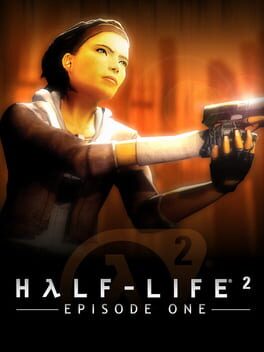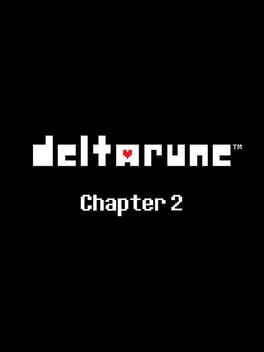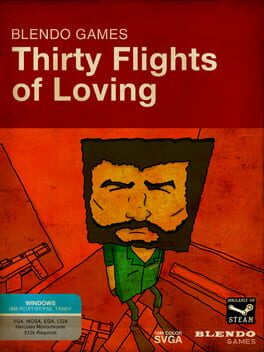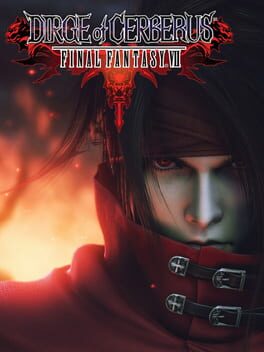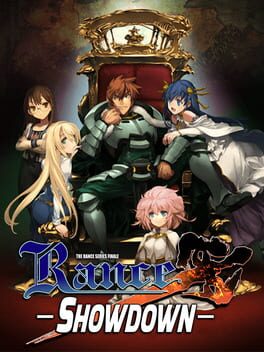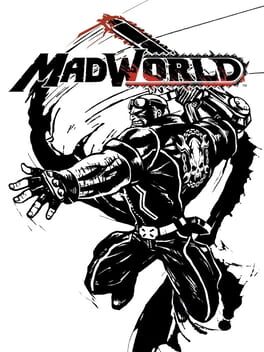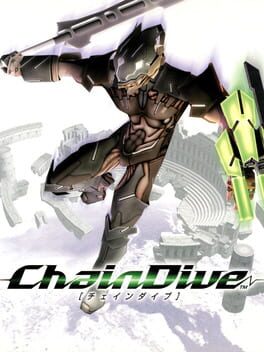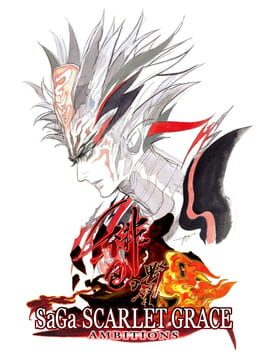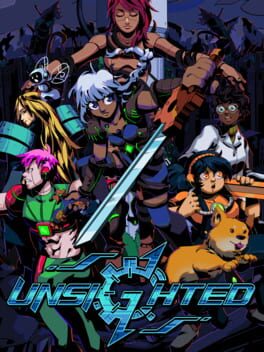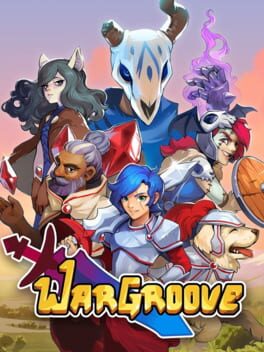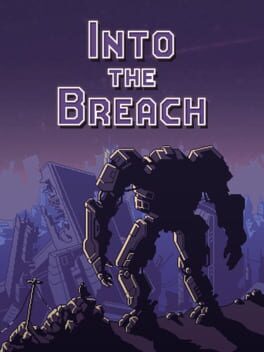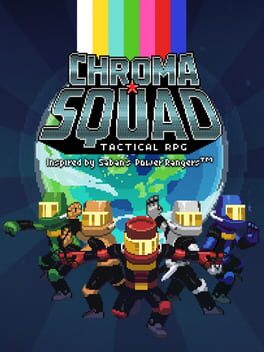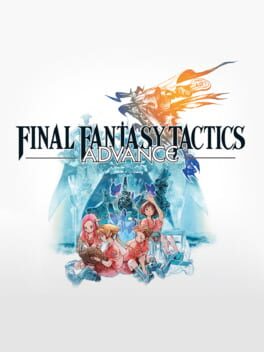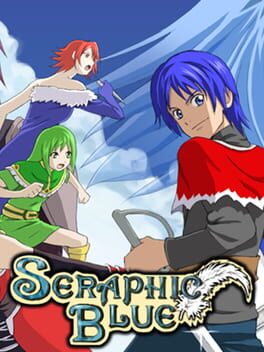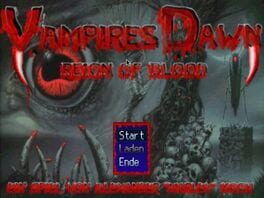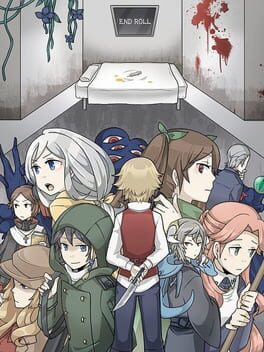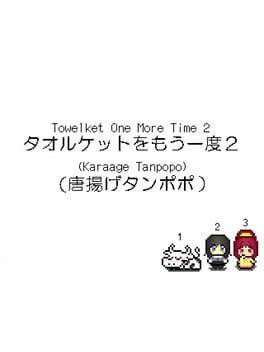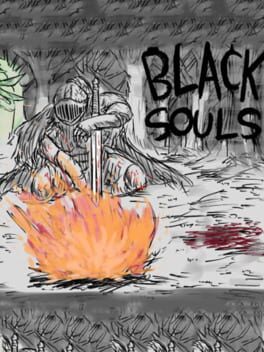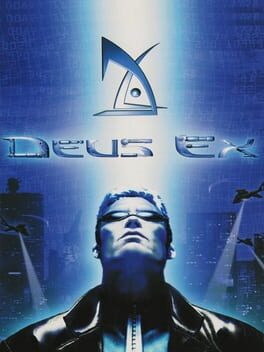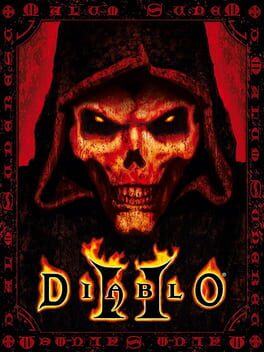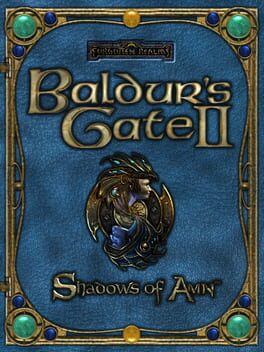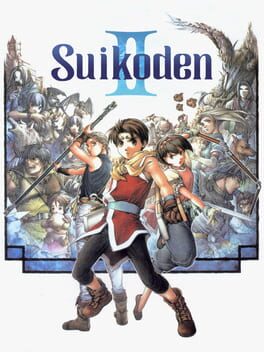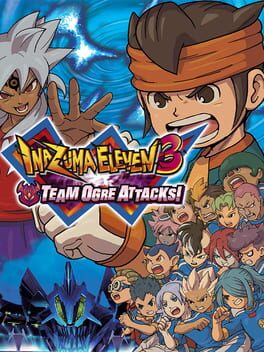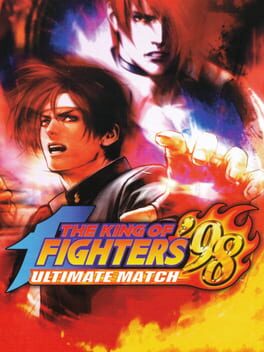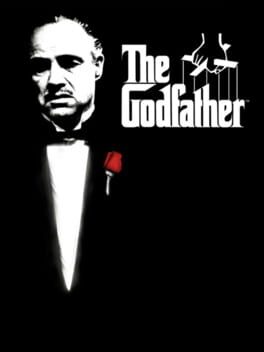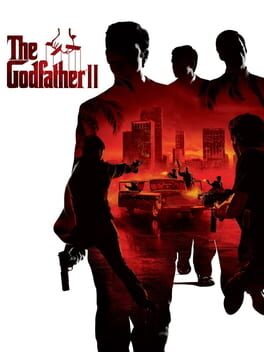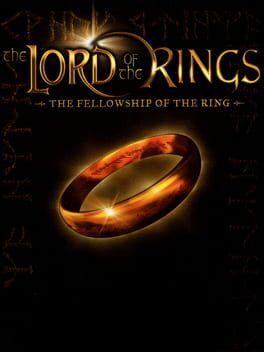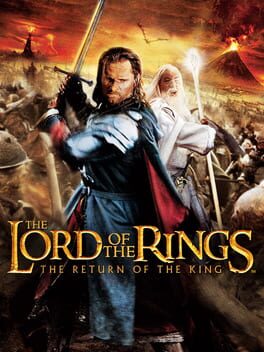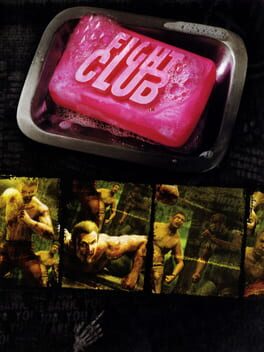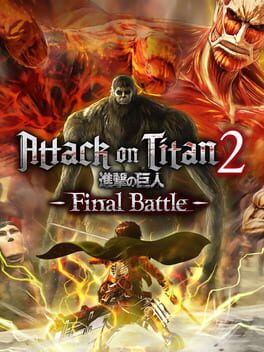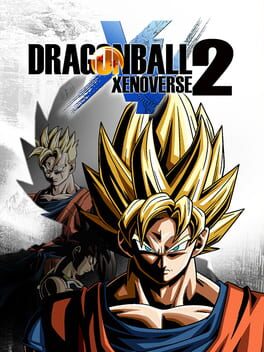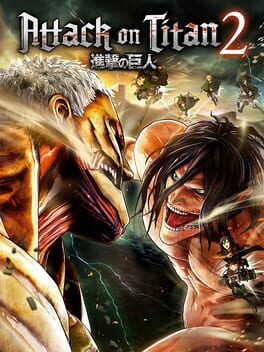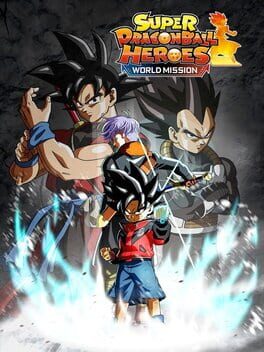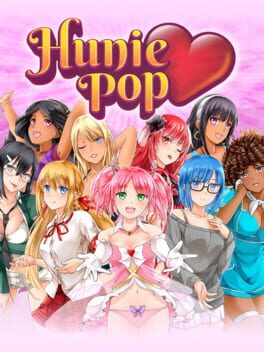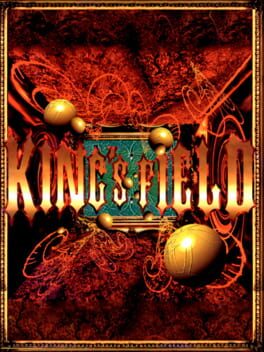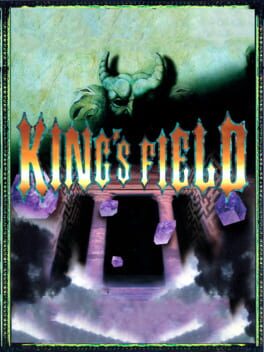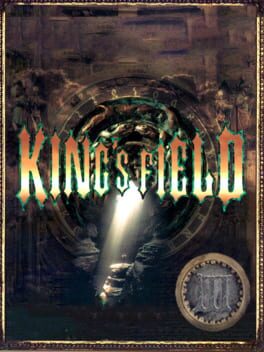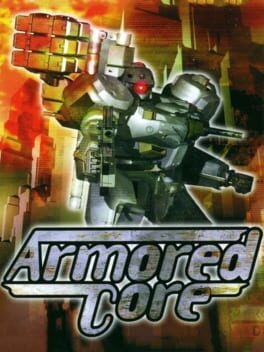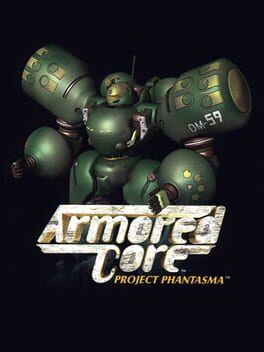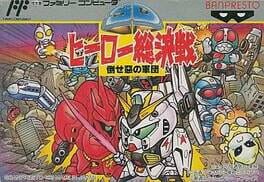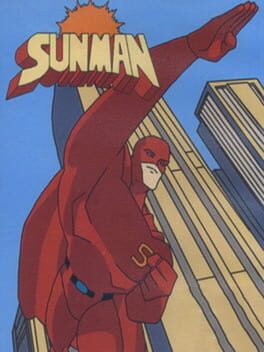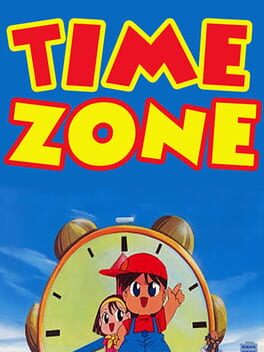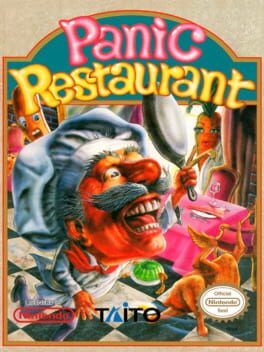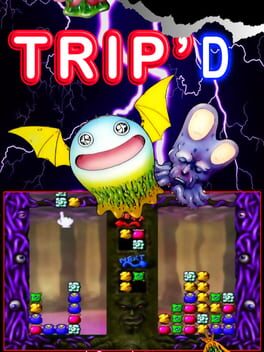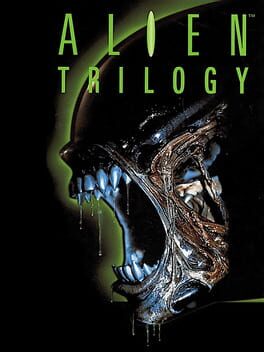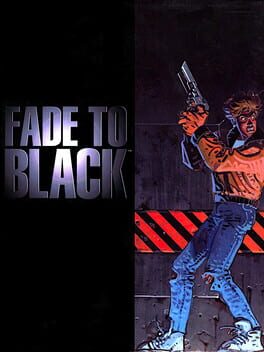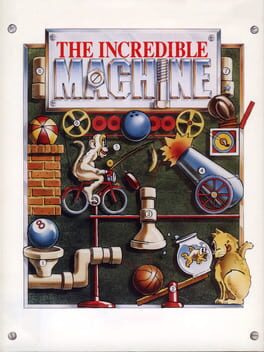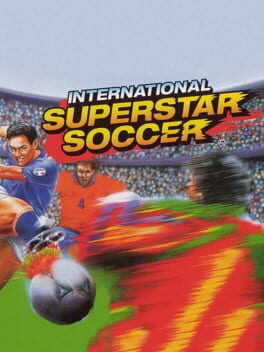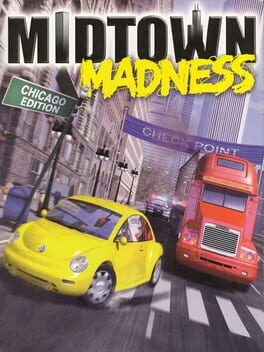Shier
12 reviews liked by Shier
The Evil Within 2
2017
ive always felt the first evil within represented a pitifully directed attempt at something of a horror anthology, mikamis mythic final shot at a title that cobbled together the familiar imagery of his deific body of work with over a dozen new and incohesive ideas that ended up fitting together about as well as a broken jigsaw puzzle. it's one of the rawest disappointments in the medium; its successor replaces the originals dim and misguided attempts to foster a thrilling, psychological weight with a riproaring extravaganza through shattered suburbia and dingy back-alleys infected with competing egos and the subconscious. it's a modern title that perfectly replicates the tone and thrust of classic resident evil's brand of stark horror and schmaltzy optimism; if that doesn't appeal to you, i understand, but it's such a treat in modern gaming to be able to actively and sincerely cheer for a protagonists relatively unambitious goals and his raimi-esque awakening to fearlessness. ends up asking some unique questions of its own, too - just a really memorable package overall, one that i feel is way too easy to dismiss for some. in narrative structure it unabashedly wears resident evil 4 on its sleeve, too, and this is primarily worth mentioning because it's one of the few derivatives with the confidence to stand on its own and to not have me questioning if i should abandon all further engagement to go and replay resident evil 4 instead. its gameplay loop overextends its warm welcome but it is a surprisingly taut title until that point, and the open-district form led to some stirring surprises. removing mikami from the helm seemed like this burgeoning franchise's death knell, but in this instance it's a strong argument for allowing new talent to step in and try their hand at the craft
The Last Guardian
2016
Can’t believe Dunkey really tricked nine million gamers into thinking The Last Guardian was this broken dumpster fire devoid of any fun or joy. Shaking my head. The gaming community really let me down with this one, maybe some other content creator a decade later will realize it was actually good when it’ll be +120$ on retro game store shelves.
Okay, being more rational here, I’ve always found the mixed reception of The Last Guardian to be rather puzzling. You’d think the third game from industry legend Fumito Ueda, the man behind ICO and Shadow of the Colossus, arguably two of the most influential PS2 games ever, would come out with more enthusiasm behind it after its infamously long nine-year development time, spanning a whole console generation. But quite literally the opposite happened. The game was so divisive on its release by critics and audiences it’s no surprise nobody wanted to be the guinea pig that invested their time and money into it. Many of its detractors claimed this was because Trico, the big animal companion and the main mechanic of the game, was unresponsive and unreliable too frequently, giving the player more lack of control than necessary and making playing the game more frustrating than it needed to be. Which I’ve always found that odd because I feel lack of control has always been a major theme in Ueda’s games?
In ICO, you play as a little boy trying to escape a big castle with a girl named Yorda who doesn’t speak the same language and can’t make the same jumps or climbs as you, yet is relied upon to open certain doors to progress your escape. You cannot progress without Yorda, you have to work around her limitations to solve puzzles and protect her from the occasional fight with these shadowy figures. If you go too many rooms too far away from her, you risk her getting captured which kills you. So you have to escort her a lot of the time by hand or yell for her to get her to come to you, which her AI has never really been the best to be honest? It was to the point where Team Ico moved development of the game from the PS1 to the PS2 so they can have more processing power to get her to work and it can still be a bit bumbly and finicky at times. In Shadow of the Colossus, you were this warrior who wandered into a forbidden land to make a deal with a deity to resurrect a girl named Mono from the dead by riding to and killing 16 Colossi, these impossibly towering creatures made of stone and fur. You had to climb on these things and find their weak spots to stab as you wrestle with the overwhelming forces of gravity of these massive creatures trying to shake you off, which oftentimes means you have to hang on for dear life for what seems minutes on end before you can keep climbing as you watch your stamina bar get lower and lower, creating more dread of falling off and having to get back on again. It’s not as if oppression by removing control from the player has never been in Ueda’s previous work before, and these are often aspects I’ve seen praised in these two games, myself included. However, I think these are often overlooked when talking about The Last Guardian because there’s always a sense that you have more kinds of control over your own actions in those games at the end of the day. That you are the one who can hold Yorda’s hand and take her where she needs to be most of the time, that you are the one who made the decision to climb upwards on the Colossi at the most inopportune time. Ueda’s games have always had this near-perfect balance of making the grand scenario more and more learnable while still grounding the player in the reality they’re really in.
This is why I feel The Last Guardian was a harder sell for many people. While I argue the journey itself is more tonally lighthearted than his previous work, The Last Guardian is by far Ueda’s most oppressive feeling game. The boy is not The Wanderer, he’s not even Ico, he’s just about as small and frail as Yorda and can only make the smallest of jumps, hang on the tiniest of ledges, and can push only certain objects around in terrain that scales from tower to tower in a journey that asks you to go higher and higher up the clouds. You more than ever have to rely on your partner Trico, this massive impossible mix of a cat and a bird probably the size of a small house. Only she can make you reach heights you otherwise can’t and make those impossible jumps from tower to tower. Trico is probably the most convincing animal in a video game I’ve ever played, but to some, that’s a burden they can’t deal with. Trico will get hungry so you have to look for barrels sometimes to feed her, Trico will get flustered when she attacks these strange inanimate stone guards so you have to pet her to calm her down, Trico gets scared of these glass windows with eye-shaped designs on them so you have to find a way to destroy them even if you have to do some insane parkour to get to them, Trico will sometimes just flat out ignore your yelling commands by design taking longer to do what the player may see as the simplest of jumps. While Trico is the most relied-on partner character ever in an Ueda game, the boy still has to escort and command this man-eating beast from place to place to solve puzzles or to platform around large jumps. In other words, it’s ICO again, but this time the roles are reversed.
Of course the pitch of “you move an animal around that will act like an animal” was only going to appeal to the most committed to its premise, and it being Ueda’s longest game meant more people were going to fall off of it before they got a chance to see its conclusion. But I feel that aspect also overshadowed discussion of other issues the game has to be honest. You can practically feel its nine years of ambitious development time when the game starts to barely contain its targeted 30fps threshold. The environmental flourishes and details around Ueda’s legendarily creative architecture are jaw-droppingly gorgeous, and as you get higher and higher up the clouds you see more and more of what you maneuvered around down below, but sometimes I feel this hyper fixation on its details mixed with its advanced lighting system can obfuscate puzzle information more often than it needed to, and I feel Team Ico knew this, which is why the game relies on its tip systems too much. There are not only button prompts that appear frequently on the top right of the screen to give clues on what you can interact with, but narration from the boy's perspective will appear similar to Shadow of the Colossus if the game detects the player being on a puzzle for too long. It’s kind of a shame that Ueda’s games still feature these immersion-breaking UI elements present and criticized in Shadow of the Colossus for years with no real way of turning them off, but I feel the game would’ve only been more frustrating on a first time playthrough if they weren’t there. Then there are the occasional physics engine issues that the game will stumble upon, while I found the physics complied with me more than most Havok engine games do to be honest, I did have a moment in my playthrough where when Trico jumped the boy was suddenly teleported upwards which made me fall towards my impending doom, so it’s by no means perfect even if I had a better time with it. The camera is by far my biggest issue with the game. It’s this fickle mistress that only focuses on what it wants to. Sometimes it’ll autofocus on Trico, or the ledge you need to jump on, and sometimes you have to adjust it yourself. Sometimes the camera will get stuck in tight environments with you and Trico which will reset itself with this awkward cut to black which can repeat over and over again rather than just clipping out of bounds to give the player a better view from behind similar to God Hand. The Last Guardian's technical ambitions from its AI to its environments can be seen from a distance as impressive, but its lack of gracefullness at times can also be seen as its downfall, and it’s no wonder why the game had the hardest time sticking with players the most.
It… might be my favorite Ueda game?
It might be too early to tell as I’m writing this, but it just feels right to say. This game just did it all for me. While ICO and Shadow of the Colossus are up there as some of my personal favorite games, I feel The Last Guardian is the most successful in what it sets out to do: to bond the player with its partner character. I never really particularly cared for Yorda or Mono or even Agro as much as I wish I could despite those characters being the central emotional core of the story. While I appreciate the former for its wordless communication between Yorda and Ico along their journey, I can understand the criticisms against the latter. It’s hard to place the corpse of a woman you’ve never interacted with in front of the player and expect them to care, which is why I feel players connected with Agro the horse a lot more since it’s someone you used to venture around the place even if all you did was ride on it and commanded where to go. Trico is that but taken a step further. Yes, Trico acts like a big dumb animal, but somehow managing to get her around these dark tight corridors with traps or these sky-bound vistas feels like accomplishing little miracles one at a time. The game features Ueda’s most creative puzzle design yet, asking the player to constantly think with Trico in mind, and it’s where the rooms where you are alone without Trico are the most pulse-pounding anxiety-inducing. Without that protection from Trico, you are more in danger from other threats like the stone guards or extreme heights you can’t fall on Trico as a failsafe. About halfway through I looked at Trico less like an obstacle and started to look at Trico as the guardian she really is. And you know what I think?
It’s rad as hell! And it’s fun! Seriously! Every time you get Trico to do her earth-shattering cat pounce from one stone pillar to the next it feels like this major accomplishment that the two of you managed to pull off. Every moment you have to climb around Trico when she sees an eye-shaped glass window hung by a stone tower and then get there by doing some mind-bending platforming as you look down at the stomach-churning distance between you and the ground (no seriously, jesus christ lol) and having to jump all the way down on her back is so immensely intense but pulling it off to progress just works. Every time Trico saves you from an army of mysterious stone guards is the ultimate “sick ‘em fido” of video games, yet the game always reminds you to comfort Trico after with a few pets, and maybe pull out a few spears thrown at her body. It’s this dedication the game has with these moment-to-moment connections between you and Trico as you two help each other out closer and closer to the end that makes the later moments where she starts to break design conventions all the more convincing and powerful. The Last Guardian to me is a game of little accomplishments up to the grand finale.
The Last Guardian is not a perfect game, and it’s hardly one I can see the casual player really sticking with very long. Even I had moments where I wished Trico would comply with me more and wished the game’s framerate didn’t give me a headache, but the last three hours of this game to me are borderline perfect, climaxing to Ueda’s strongest story beats yet, somehow managing to top himself with his best ending yet (a man already known for crafting the best endings ever). All the coincidental frustration I had with The Last Guardian seemed fleeting and diminutive. By the end of it, I was more frustrated at being reminded of its dismissive reputation that caused me to hold it off this long. The Last Guardian should be a testament to Team Ico’s mastery of storytelling through game design, rather than be left in the shadows of its predecessor's legacies, but even if it stays within those shadows of obscurity forever, I’m happy to have stuck with the journey through The Nest, atop Trico’s feathery back.
The Last Guardian is a game of accomplishments, and much like ICO and Shadow of the Colossus, stands just as tall as those games do, as the achievement it undoubtedly is.
Okay, being more rational here, I’ve always found the mixed reception of The Last Guardian to be rather puzzling. You’d think the third game from industry legend Fumito Ueda, the man behind ICO and Shadow of the Colossus, arguably two of the most influential PS2 games ever, would come out with more enthusiasm behind it after its infamously long nine-year development time, spanning a whole console generation. But quite literally the opposite happened. The game was so divisive on its release by critics and audiences it’s no surprise nobody wanted to be the guinea pig that invested their time and money into it. Many of its detractors claimed this was because Trico, the big animal companion and the main mechanic of the game, was unresponsive and unreliable too frequently, giving the player more lack of control than necessary and making playing the game more frustrating than it needed to be. Which I’ve always found that odd because I feel lack of control has always been a major theme in Ueda’s games?
In ICO, you play as a little boy trying to escape a big castle with a girl named Yorda who doesn’t speak the same language and can’t make the same jumps or climbs as you, yet is relied upon to open certain doors to progress your escape. You cannot progress without Yorda, you have to work around her limitations to solve puzzles and protect her from the occasional fight with these shadowy figures. If you go too many rooms too far away from her, you risk her getting captured which kills you. So you have to escort her a lot of the time by hand or yell for her to get her to come to you, which her AI has never really been the best to be honest? It was to the point where Team Ico moved development of the game from the PS1 to the PS2 so they can have more processing power to get her to work and it can still be a bit bumbly and finicky at times. In Shadow of the Colossus, you were this warrior who wandered into a forbidden land to make a deal with a deity to resurrect a girl named Mono from the dead by riding to and killing 16 Colossi, these impossibly towering creatures made of stone and fur. You had to climb on these things and find their weak spots to stab as you wrestle with the overwhelming forces of gravity of these massive creatures trying to shake you off, which oftentimes means you have to hang on for dear life for what seems minutes on end before you can keep climbing as you watch your stamina bar get lower and lower, creating more dread of falling off and having to get back on again. It’s not as if oppression by removing control from the player has never been in Ueda’s previous work before, and these are often aspects I’ve seen praised in these two games, myself included. However, I think these are often overlooked when talking about The Last Guardian because there’s always a sense that you have more kinds of control over your own actions in those games at the end of the day. That you are the one who can hold Yorda’s hand and take her where she needs to be most of the time, that you are the one who made the decision to climb upwards on the Colossi at the most inopportune time. Ueda’s games have always had this near-perfect balance of making the grand scenario more and more learnable while still grounding the player in the reality they’re really in.
This is why I feel The Last Guardian was a harder sell for many people. While I argue the journey itself is more tonally lighthearted than his previous work, The Last Guardian is by far Ueda’s most oppressive feeling game. The boy is not The Wanderer, he’s not even Ico, he’s just about as small and frail as Yorda and can only make the smallest of jumps, hang on the tiniest of ledges, and can push only certain objects around in terrain that scales from tower to tower in a journey that asks you to go higher and higher up the clouds. You more than ever have to rely on your partner Trico, this massive impossible mix of a cat and a bird probably the size of a small house. Only she can make you reach heights you otherwise can’t and make those impossible jumps from tower to tower. Trico is probably the most convincing animal in a video game I’ve ever played, but to some, that’s a burden they can’t deal with. Trico will get hungry so you have to look for barrels sometimes to feed her, Trico will get flustered when she attacks these strange inanimate stone guards so you have to pet her to calm her down, Trico gets scared of these glass windows with eye-shaped designs on them so you have to find a way to destroy them even if you have to do some insane parkour to get to them, Trico will sometimes just flat out ignore your yelling commands by design taking longer to do what the player may see as the simplest of jumps. While Trico is the most relied-on partner character ever in an Ueda game, the boy still has to escort and command this man-eating beast from place to place to solve puzzles or to platform around large jumps. In other words, it’s ICO again, but this time the roles are reversed.
Of course the pitch of “you move an animal around that will act like an animal” was only going to appeal to the most committed to its premise, and it being Ueda’s longest game meant more people were going to fall off of it before they got a chance to see its conclusion. But I feel that aspect also overshadowed discussion of other issues the game has to be honest. You can practically feel its nine years of ambitious development time when the game starts to barely contain its targeted 30fps threshold. The environmental flourishes and details around Ueda’s legendarily creative architecture are jaw-droppingly gorgeous, and as you get higher and higher up the clouds you see more and more of what you maneuvered around down below, but sometimes I feel this hyper fixation on its details mixed with its advanced lighting system can obfuscate puzzle information more often than it needed to, and I feel Team Ico knew this, which is why the game relies on its tip systems too much. There are not only button prompts that appear frequently on the top right of the screen to give clues on what you can interact with, but narration from the boy's perspective will appear similar to Shadow of the Colossus if the game detects the player being on a puzzle for too long. It’s kind of a shame that Ueda’s games still feature these immersion-breaking UI elements present and criticized in Shadow of the Colossus for years with no real way of turning them off, but I feel the game would’ve only been more frustrating on a first time playthrough if they weren’t there. Then there are the occasional physics engine issues that the game will stumble upon, while I found the physics complied with me more than most Havok engine games do to be honest, I did have a moment in my playthrough where when Trico jumped the boy was suddenly teleported upwards which made me fall towards my impending doom, so it’s by no means perfect even if I had a better time with it. The camera is by far my biggest issue with the game. It’s this fickle mistress that only focuses on what it wants to. Sometimes it’ll autofocus on Trico, or the ledge you need to jump on, and sometimes you have to adjust it yourself. Sometimes the camera will get stuck in tight environments with you and Trico which will reset itself with this awkward cut to black which can repeat over and over again rather than just clipping out of bounds to give the player a better view from behind similar to God Hand. The Last Guardian's technical ambitions from its AI to its environments can be seen from a distance as impressive, but its lack of gracefullness at times can also be seen as its downfall, and it’s no wonder why the game had the hardest time sticking with players the most.
It… might be my favorite Ueda game?
It might be too early to tell as I’m writing this, but it just feels right to say. This game just did it all for me. While ICO and Shadow of the Colossus are up there as some of my personal favorite games, I feel The Last Guardian is the most successful in what it sets out to do: to bond the player with its partner character. I never really particularly cared for Yorda or Mono or even Agro as much as I wish I could despite those characters being the central emotional core of the story. While I appreciate the former for its wordless communication between Yorda and Ico along their journey, I can understand the criticisms against the latter. It’s hard to place the corpse of a woman you’ve never interacted with in front of the player and expect them to care, which is why I feel players connected with Agro the horse a lot more since it’s someone you used to venture around the place even if all you did was ride on it and commanded where to go. Trico is that but taken a step further. Yes, Trico acts like a big dumb animal, but somehow managing to get her around these dark tight corridors with traps or these sky-bound vistas feels like accomplishing little miracles one at a time. The game features Ueda’s most creative puzzle design yet, asking the player to constantly think with Trico in mind, and it’s where the rooms where you are alone without Trico are the most pulse-pounding anxiety-inducing. Without that protection from Trico, you are more in danger from other threats like the stone guards or extreme heights you can’t fall on Trico as a failsafe. About halfway through I looked at Trico less like an obstacle and started to look at Trico as the guardian she really is. And you know what I think?
It’s rad as hell! And it’s fun! Seriously! Every time you get Trico to do her earth-shattering cat pounce from one stone pillar to the next it feels like this major accomplishment that the two of you managed to pull off. Every moment you have to climb around Trico when she sees an eye-shaped glass window hung by a stone tower and then get there by doing some mind-bending platforming as you look down at the stomach-churning distance between you and the ground (no seriously, jesus christ lol) and having to jump all the way down on her back is so immensely intense but pulling it off to progress just works. Every time Trico saves you from an army of mysterious stone guards is the ultimate “sick ‘em fido” of video games, yet the game always reminds you to comfort Trico after with a few pets, and maybe pull out a few spears thrown at her body. It’s this dedication the game has with these moment-to-moment connections between you and Trico as you two help each other out closer and closer to the end that makes the later moments where she starts to break design conventions all the more convincing and powerful. The Last Guardian to me is a game of little accomplishments up to the grand finale.
The Last Guardian is not a perfect game, and it’s hardly one I can see the casual player really sticking with very long. Even I had moments where I wished Trico would comply with me more and wished the game’s framerate didn’t give me a headache, but the last three hours of this game to me are borderline perfect, climaxing to Ueda’s strongest story beats yet, somehow managing to top himself with his best ending yet (a man already known for crafting the best endings ever). All the coincidental frustration I had with The Last Guardian seemed fleeting and diminutive. By the end of it, I was more frustrated at being reminded of its dismissive reputation that caused me to hold it off this long. The Last Guardian should be a testament to Team Ico’s mastery of storytelling through game design, rather than be left in the shadows of its predecessor's legacies, but even if it stays within those shadows of obscurity forever, I’m happy to have stuck with the journey through The Nest, atop Trico’s feathery back.
The Last Guardian is a game of accomplishments, and much like ICO and Shadow of the Colossus, stands just as tall as those games do, as the achievement it undoubtedly is.
Elden Ring
2022
Holy Fuck.
You know, there are times when you get worried as someone who's been playing videogames for awhile. Will I never find my 'favorite' game again? Are all the good games behind me, and everything else coming is just decent, maybe once and awhile great, but nothing in compared to what you felt before? That's somewhat where I was at with Elden Ring, and here it is.
All of the things I had at 5 stars prior to now were freeware... and a VN, but that's a special case. That's not to say I'm allergic to any game that requires money to play, but my big favorites often come from small teams, or even single people, making games with a focused vision, or unrestrained ambition. Elden Ring has both, in spades.
From your first footsteps outside, you can tell what kind of game you're playing. Similar to every game in the souls series, you wander around a now dead kingdom, like a fly buzzing over a carcass, but never has that atmosphere been more prevalent here. Architecture sanded away by time, great big monuments in tatters, madness and hostility everywhere you see. But that's not the only atmosphere Elden Ring has. Sometimes it's more mystical and dabbles in the unknown, sometimes it's gross but beautiful, sometimes it's hard to even describe. But the map never stops giving you something new, new senses to experience, new things to find.
See, open world games have been in the same cyclical trap for a long time when it comes to big releases. A map filled with nothing but collectibles, the same bandit camp copy pasted. But Elden Ring, while does have some asset resuse, I won't lie, the entire world feels like it has a purpose. Ruins hide basements which hide ashes, churches are always good to find, towers golden trees. Minor dungeons such as caves all the way to other huge maps and castles entirely. It's not just the amount of content, it's the depth of it.
The souls series has always been desperately trying to evoke this sense of exploration and awe-struck wonder. It's done so in different ways. Dark Souls 1 had it's looping world, Dark Souls 2 had size and ambition, 3 had hostility in combat. Bloodborne evoked a haunting atmosphere. But it was never put together, something always lacked one from the other. Bloodborne got the closest, and now we've hit its apex.
I can't say the game is entirely perfect, of course. The catacomb dungeons can sometimes feel a bit bland, especially with DaS2 bosses usually sitting at the end. But I found I was often at least given a weapon to see. And the natural consequence of a game so open ended is that much of the game can accidentally end up trivialized by finding it too late. It's not a problem to some, of course there's natural satisfaction from feeling your characters strength in a concrete way, but it's worth mentioning.
And I've also seen some people dislike exactly how freeform it is; they get stressed out without a clear goal. I sympathize with this, as someone who can end up lost and overwhelemd and was at times even in this game, but at the same time I wouldn't want it any other way in this game. It's a joy to be lost in.
It's the best in the series for sure, and one of the better games to be released in years in the main stream, and definitely one of my favorite games of all time now.
You know, there are times when you get worried as someone who's been playing videogames for awhile. Will I never find my 'favorite' game again? Are all the good games behind me, and everything else coming is just decent, maybe once and awhile great, but nothing in compared to what you felt before? That's somewhat where I was at with Elden Ring, and here it is.
All of the things I had at 5 stars prior to now were freeware... and a VN, but that's a special case. That's not to say I'm allergic to any game that requires money to play, but my big favorites often come from small teams, or even single people, making games with a focused vision, or unrestrained ambition. Elden Ring has both, in spades.
From your first footsteps outside, you can tell what kind of game you're playing. Similar to every game in the souls series, you wander around a now dead kingdom, like a fly buzzing over a carcass, but never has that atmosphere been more prevalent here. Architecture sanded away by time, great big monuments in tatters, madness and hostility everywhere you see. But that's not the only atmosphere Elden Ring has. Sometimes it's more mystical and dabbles in the unknown, sometimes it's gross but beautiful, sometimes it's hard to even describe. But the map never stops giving you something new, new senses to experience, new things to find.
See, open world games have been in the same cyclical trap for a long time when it comes to big releases. A map filled with nothing but collectibles, the same bandit camp copy pasted. But Elden Ring, while does have some asset resuse, I won't lie, the entire world feels like it has a purpose. Ruins hide basements which hide ashes, churches are always good to find, towers golden trees. Minor dungeons such as caves all the way to other huge maps and castles entirely. It's not just the amount of content, it's the depth of it.
The souls series has always been desperately trying to evoke this sense of exploration and awe-struck wonder. It's done so in different ways. Dark Souls 1 had it's looping world, Dark Souls 2 had size and ambition, 3 had hostility in combat. Bloodborne evoked a haunting atmosphere. But it was never put together, something always lacked one from the other. Bloodborne got the closest, and now we've hit its apex.
I can't say the game is entirely perfect, of course. The catacomb dungeons can sometimes feel a bit bland, especially with DaS2 bosses usually sitting at the end. But I found I was often at least given a weapon to see. And the natural consequence of a game so open ended is that much of the game can accidentally end up trivialized by finding it too late. It's not a problem to some, of course there's natural satisfaction from feeling your characters strength in a concrete way, but it's worth mentioning.
And I've also seen some people dislike exactly how freeform it is; they get stressed out without a clear goal. I sympathize with this, as someone who can end up lost and overwhelemd and was at times even in this game, but at the same time I wouldn't want it any other way in this game. It's a joy to be lost in.
It's the best in the series for sure, and one of the better games to be released in years in the main stream, and definitely one of my favorite games of all time now.
Inside
2016
This game hit me super duper hard.
You ever stare at a famous painting, and you get why people like it, you get the vibe it's going for, but it's just not doing anything for you, and then suddenly after a few solid minutes of staring at it you start to break into tears as the weight of what you're viewing hits you all at once? This game gave me a moment like that.
What's here is an incredibly artistic, incredibly tense and atmospheric, puzzle-platformer with a grim theme and a crazy fucking final stretch that never fails to shock.
It's probably a 3.5 or 4.0 for most people, it's a 5.0 for me personally. I hope you like it!
You ever stare at a famous painting, and you get why people like it, you get the vibe it's going for, but it's just not doing anything for you, and then suddenly after a few solid minutes of staring at it you start to break into tears as the weight of what you're viewing hits you all at once? This game gave me a moment like that.
What's here is an incredibly artistic, incredibly tense and atmospheric, puzzle-platformer with a grim theme and a crazy fucking final stretch that never fails to shock.
It's probably a 3.5 or 4.0 for most people, it's a 5.0 for me personally. I hope you like it!
Metal Gear Online
2008
I've included links to get MGO2 running again on PC and PS3
MGO2 will forever be an unsung hero of the stealth shooter world. Truly one of the greatest of all time, there has not been anything quite like it ever since, including MGSVs comparably awkward (at best) sequel.
There are now fan servers you can play on the PC and PS3 today, but of course the skill curve is high. The limited player-base alone makes it a shadow of itself, but that shadow still stands tall, and I recommend giving it a go for anyone who didn't get to play this in 2008-12.
Here's a tutorial with some download links to walk you through the process of getting MGO2 up and running on PC, Enjoy!
https://www.youtube.com/watch?v=X-fLbF75PCs
Here's a dedicated discord for MGO2 PC players (They also have links to get it running on PS3):
https://discord.gg/mgo2pc
MGO2 will forever be an unsung hero of the stealth shooter world. Truly one of the greatest of all time, there has not been anything quite like it ever since, including MGSVs comparably awkward (at best) sequel.
There are now fan servers you can play on the PC and PS3 today, but of course the skill curve is high. The limited player-base alone makes it a shadow of itself, but that shadow still stands tall, and I recommend giving it a go for anyone who didn't get to play this in 2008-12.
Here's a tutorial with some download links to walk you through the process of getting MGO2 up and running on PC, Enjoy!
https://www.youtube.com/watch?v=X-fLbF75PCs
Here's a dedicated discord for MGO2 PC players (They also have links to get it running on PS3):
https://discord.gg/mgo2pc
Dark Souls II
2014
How many times can you have a profound videogame experience? Which ones can be repeated? Before it all goes hollow.
Here’s Anor Londo, drowned. Here’s the Palace of Boletaria, overgrown. The sequel as remix. Except shallower, to be toured rather than inhabited, built by level designers instead of architects.
Here are more bosses, here is more death. The sequel as more. More environments, segmented by more bonfires, cluttered with more enemies at once. And less memorable. With less character. Less soul.
Dark Souls 2 is a decent enough sequel. And I do not accept the premise of the videogame sequel.
Here’s Anor Londo, drowned. Here’s the Palace of Boletaria, overgrown. The sequel as remix. Except shallower, to be toured rather than inhabited, built by level designers instead of architects.
Here are more bosses, here is more death. The sequel as more. More environments, segmented by more bonfires, cluttered with more enemies at once. And less memorable. With less character. Less soul.
Dark Souls 2 is a decent enough sequel. And I do not accept the premise of the videogame sequel.
"A Good Follow-Up If Not Dramatically Disappointing"
After replaying "Half Life 2" and becoming mesmerized with the pacing, worldbuilding, level design, and art direction of that amazing title, I went into this first episode hoping that the same quality would continue to present itself albeit in a more bite-sized portion. Unfortunately, "Half-Life 2: Episode One" takes a massive step back in pacing, story and level design that lead to a good addition to the series but a disappointing step back for the gameplay experience. While the environments are still detailed and the worldbuilding remains incredible, there is a lack of real substance behind the goals of Gordon and Alyx throughout.
First off, the pacing: its been slowed in some areas to a crawl. While you begin in the aftermath of the Citadel's destructive collapse, the game takes its sweet time laying out the same gameplay loop that was present in the original title. It isn't until halfway through the game where you finally get the chance to use some decent weaponry, and even then there aren't many combat arenas to use them in for a little while beyond that. However, out of the nowhere the game throws nearly every weapon Freeman had at the end of the original game back into his arsenal going into the fourth (out of five) chapter, which felt very unnecessary. Weapons should've been trickled into the player's possession much earlier and spaced out accordingly, since there aren't any notable additions to Gordon's loadout as well as the fact that this title is a fifth of the length of the original game.
Combat arenas are also notably weaker, and many devolve into simple shootouts versus giant spiderants and Combine opponents. Many are linear and lack movement like in the original title during segments like Nova Prospekt, and there are no defense scenarios like in the aforementioned chapter from the base game. While the player is propelled forward for much of the story, it feels as if the developers forgot to spice the gameplay up with some defense segments, involved puzzle solving sequences, or detailed and interesting combat arenas. For the most part you'll run forward, shoot enemies, and repeat unless you are thrown into a square/circular room with little cover and objects to use.
The story also comes to a halt here: Gordon and Alyx are stranded inside of the Citadel with little time before a second reactor meltdown, but after delaying the process the duo are completely focused on escaping the city. While there are some worldbuilding elements such as an explanation as to the origins of the strange creatures in the Citadel, as well as some insight on the struggles of humanity under Combine control, many of it provides depth to the world but lacks a compelling narrative to boot. It boils down to an escape from the city with a few key setpieces along the way.
Visually, the game looks as good as before if not a tad bit better. There are some interesting lighting segments when Gordon and Alyx traverse through the railway systems underneath City 17, and the destroyed landscape of the city itself (while lacking in some color) showcases the bleak nature of the destructive forces at hand. This amplified the intensity of the escape itself a lot, and despite many actual "levels" being a bit standard, it got me through most of the experience without a heap of complaints.
The gunplay is untouched thankfully, though the delay of getting weapons was annoying. The game's focus on the gravity gun early on is an okay gimmick, but that was a stronger gimmick at the end of the last game and lost a lot of the impact gameplay-wise here. There aren't a whole heap of environmental puzzles section nor standard puzzles as well, which would have helped with the level design stagnation and pacing issues. The music is still good, though a lack of mood-setting tracks such as that of Ravenholm's really showcased some of the repetitive action-packed fury these tracks tend to convey. A better mix would have done wonders, though this would have also required some better level diversity.
Overall, I enjoyed my time with "Half-Life 2: Episode One" but I'm left with the feeling that this project was severely rushed and chopped up. Honestly, both episode's being combined into one would have given Valve more room to experiment with level design again, but the nature of these episodes and the lack of commitment for a full sequel must've forced Valve's hand, especially with the way things were left in the base game. This would've worked better as a combination with the other episode and a full rebranding, possibly just splitting the game into two parts akin to "The Last of Us", but alas this is what we were left with. Thankfully the series is still alive and kicking, and this serves as a solid albeit disappointing entry in light of one of my favorite games of all time. I can Recommend this one to fans of the first and second games...obviously. I mean there's no point of playing this if you haven't at least played the base game...so go do that if you haven't!
Final Verdict: 7/10 (Good)
After replaying "Half Life 2" and becoming mesmerized with the pacing, worldbuilding, level design, and art direction of that amazing title, I went into this first episode hoping that the same quality would continue to present itself albeit in a more bite-sized portion. Unfortunately, "Half-Life 2: Episode One" takes a massive step back in pacing, story and level design that lead to a good addition to the series but a disappointing step back for the gameplay experience. While the environments are still detailed and the worldbuilding remains incredible, there is a lack of real substance behind the goals of Gordon and Alyx throughout.
First off, the pacing: its been slowed in some areas to a crawl. While you begin in the aftermath of the Citadel's destructive collapse, the game takes its sweet time laying out the same gameplay loop that was present in the original title. It isn't until halfway through the game where you finally get the chance to use some decent weaponry, and even then there aren't many combat arenas to use them in for a little while beyond that. However, out of the nowhere the game throws nearly every weapon Freeman had at the end of the original game back into his arsenal going into the fourth (out of five) chapter, which felt very unnecessary. Weapons should've been trickled into the player's possession much earlier and spaced out accordingly, since there aren't any notable additions to Gordon's loadout as well as the fact that this title is a fifth of the length of the original game.
Combat arenas are also notably weaker, and many devolve into simple shootouts versus giant spiderants and Combine opponents. Many are linear and lack movement like in the original title during segments like Nova Prospekt, and there are no defense scenarios like in the aforementioned chapter from the base game. While the player is propelled forward for much of the story, it feels as if the developers forgot to spice the gameplay up with some defense segments, involved puzzle solving sequences, or detailed and interesting combat arenas. For the most part you'll run forward, shoot enemies, and repeat unless you are thrown into a square/circular room with little cover and objects to use.
The story also comes to a halt here: Gordon and Alyx are stranded inside of the Citadel with little time before a second reactor meltdown, but after delaying the process the duo are completely focused on escaping the city. While there are some worldbuilding elements such as an explanation as to the origins of the strange creatures in the Citadel, as well as some insight on the struggles of humanity under Combine control, many of it provides depth to the world but lacks a compelling narrative to boot. It boils down to an escape from the city with a few key setpieces along the way.
Visually, the game looks as good as before if not a tad bit better. There are some interesting lighting segments when Gordon and Alyx traverse through the railway systems underneath City 17, and the destroyed landscape of the city itself (while lacking in some color) showcases the bleak nature of the destructive forces at hand. This amplified the intensity of the escape itself a lot, and despite many actual "levels" being a bit standard, it got me through most of the experience without a heap of complaints.
The gunplay is untouched thankfully, though the delay of getting weapons was annoying. The game's focus on the gravity gun early on is an okay gimmick, but that was a stronger gimmick at the end of the last game and lost a lot of the impact gameplay-wise here. There aren't a whole heap of environmental puzzles section nor standard puzzles as well, which would have helped with the level design stagnation and pacing issues. The music is still good, though a lack of mood-setting tracks such as that of Ravenholm's really showcased some of the repetitive action-packed fury these tracks tend to convey. A better mix would have done wonders, though this would have also required some better level diversity.
Overall, I enjoyed my time with "Half-Life 2: Episode One" but I'm left with the feeling that this project was severely rushed and chopped up. Honestly, both episode's being combined into one would have given Valve more room to experiment with level design again, but the nature of these episodes and the lack of commitment for a full sequel must've forced Valve's hand, especially with the way things were left in the base game. This would've worked better as a combination with the other episode and a full rebranding, possibly just splitting the game into two parts akin to "The Last of Us", but alas this is what we were left with. Thankfully the series is still alive and kicking, and this serves as a solid albeit disappointing entry in light of one of my favorite games of all time. I can Recommend this one to fans of the first and second games...obviously. I mean there's no point of playing this if you haven't at least played the base game...so go do that if you haven't!
Final Verdict: 7/10 (Good)
Deltarune: Chapter 2
2021
This review contains spoilers
I told myself I wouldn't write a review so this isn't one. I just found that I have way too much to talk about that I don't see many other people here talk about and I think it's just... sooo huge to think about and speculate.
I feel vindicated first of all because it cut to the chase heavily on that feeling of loneliness, isolation in a place you feel drifting on and not stuck to the ground or really, anything tangible. The dark world this time even offers a method of escapism, what with Kris's room showing a hollow reflection of that same gaudiness Asriel's side of their room had. Big Shot is the most explicitly hurtful hit to Kris but there's tons of hits to make the return to the town all the more damaging and harmful just watching more twisted ideas of characters you recognize fall into the same deterministic traps you expected in undertale while also watching what accounts for your 'family' look more fucked up and torn apart. And then the secret boss itself is a disgusting machination of Mettaton and it drives me insane how much he himself embodies the most brutal reflections of what Kris wants.
In some ways Deltarune already eclipses in its current strength alone Undertale with the introspection and hard hits of life, still hinging on the payoff ofc. But especially with the infamous 'genocide' route's ramifications, that push that while you may not have control over your life and feel a stuck cold path ahead of you, YOU CAN CONTROL THE LIVES OF OTHERS. This corrupted lashing out is given an even further metatextual lens and it just gets to such FUCKED up territory that the scariest part for me isn't whether it'll land the metatext but really... who else is going to be hurt next. These characters already feel so real to me that the idea of anyone more than the ones we have actively makes me shudder.
God i fucking love these games toby ruins me every time. I admit i was extremely anxious the night before release simply by what could be but my probably too much faith is so not misplaced. Thank you for the ride I look forward to the next one ;-;
I feel vindicated first of all because it cut to the chase heavily on that feeling of loneliness, isolation in a place you feel drifting on and not stuck to the ground or really, anything tangible. The dark world this time even offers a method of escapism, what with Kris's room showing a hollow reflection of that same gaudiness Asriel's side of their room had. Big Shot is the most explicitly hurtful hit to Kris but there's tons of hits to make the return to the town all the more damaging and harmful just watching more twisted ideas of characters you recognize fall into the same deterministic traps you expected in undertale while also watching what accounts for your 'family' look more fucked up and torn apart. And then the secret boss itself is a disgusting machination of Mettaton and it drives me insane how much he himself embodies the most brutal reflections of what Kris wants.
In some ways Deltarune already eclipses in its current strength alone Undertale with the introspection and hard hits of life, still hinging on the payoff ofc. But especially with the infamous 'genocide' route's ramifications, that push that while you may not have control over your life and feel a stuck cold path ahead of you, YOU CAN CONTROL THE LIVES OF OTHERS. This corrupted lashing out is given an even further metatextual lens and it just gets to such FUCKED up territory that the scariest part for me isn't whether it'll land the metatext but really... who else is going to be hurt next. These characters already feel so real to me that the idea of anyone more than the ones we have actively makes me shudder.
God i fucking love these games toby ruins me every time. I admit i was extremely anxious the night before release simply by what could be but my probably too much faith is so not misplaced. Thank you for the ride I look forward to the next one ;-;
the flawed masterpiece implies the existence of a flawless masterpiece which just seems silly. like art can't be perfect shut up. the trick is look around the flaws and accept the things - and the people - you love for what they are not what they aren't.
this is pretty goddamn flawless though, ngl. the cut to the title card? with that spy music? oh boy. that was the coolest thing i've seen all year.
this is pretty goddamn flawless though, ngl. the cut to the title card? with that spy music? oh boy. that was the coolest thing i've seen all year.
this is the sequel that Dark Souls players deserved in 2014.
i have a lot of issues with this game: the lack of verticality in its level design as compared to DS1, its reuse of early bosses constantly throughout the game that don't offer anything new or interesting, the tying of invicibility frames and estus drinking speed to a stat, its abundance of bosses that are either "Capra Demon But Different" or "Hey Y'all.... Remember This? ;)"
however, the worst offense is the game's cruelty in its encounter design. in Dark Souls 1, the little tricks and traps in the environment feel like a parent warning you not to touch a hot pan but you do it anyways. maybe you didn't know, maybe you should have known better but you still did it. in contrast, Dark Souls 2 feels like a parent going on an hour-long tirade about how all you kids ever want is pizza for dinner. DS1 feels whimsical and playful, DS2 feels like the game is rubbing your nose in the carpet to show you what happens when you get what you want.
i wouldn't mind this as much if the game's meta-commentary surrounding the nature of its gameplay and cyclical death wasn't so.... forgettable? it feels like it's gesturing toward a thoughtful discussion surrounding fan expectation, demand for sequels, fear of change, and games being "miserable on purpose," but it doesn't have much to say about it. by comparison, Pathologic 2, a game that is VERY much miserable on purpose, feels intentional in its slow, macabre, sadcore plot, because it's trying to fully disempower the player (and not just make them powerful later like DS2) to make them understand that if they were in a similar situation, they WOULD probably die and not be a special hero.
that being said, the game is still very good. it's my least favorite of the post-Dark Souls FromSoft output, but if this game was reskinned as a Zelda game and put out by Nintendo, it would be in my top 5 zelda games. it's only through comparison to other series entries that this game looks as bad as it does.
i have a lot of issues with this game: the lack of verticality in its level design as compared to DS1, its reuse of early bosses constantly throughout the game that don't offer anything new or interesting, the tying of invicibility frames and estus drinking speed to a stat, its abundance of bosses that are either "Capra Demon But Different" or "Hey Y'all.... Remember This? ;)"
however, the worst offense is the game's cruelty in its encounter design. in Dark Souls 1, the little tricks and traps in the environment feel like a parent warning you not to touch a hot pan but you do it anyways. maybe you didn't know, maybe you should have known better but you still did it. in contrast, Dark Souls 2 feels like a parent going on an hour-long tirade about how all you kids ever want is pizza for dinner. DS1 feels whimsical and playful, DS2 feels like the game is rubbing your nose in the carpet to show you what happens when you get what you want.
i wouldn't mind this as much if the game's meta-commentary surrounding the nature of its gameplay and cyclical death wasn't so.... forgettable? it feels like it's gesturing toward a thoughtful discussion surrounding fan expectation, demand for sequels, fear of change, and games being "miserable on purpose," but it doesn't have much to say about it. by comparison, Pathologic 2, a game that is VERY much miserable on purpose, feels intentional in its slow, macabre, sadcore plot, because it's trying to fully disempower the player (and not just make them powerful later like DS2) to make them understand that if they were in a similar situation, they WOULD probably die and not be a special hero.
that being said, the game is still very good. it's my least favorite of the post-Dark Souls FromSoft output, but if this game was reskinned as a Zelda game and put out by Nintendo, it would be in my top 5 zelda games. it's only through comparison to other series entries that this game looks as bad as it does.
46 lists liked by Shier
by CModel |
504 Games
by DeviMetric |
25 Games
by Detchibe |
57 Games
by MrBrovvn |
200 Games
by OrpheusSebas |
33 Games
by Riley |
26 Games
by Tzurki2 |
0 Games
